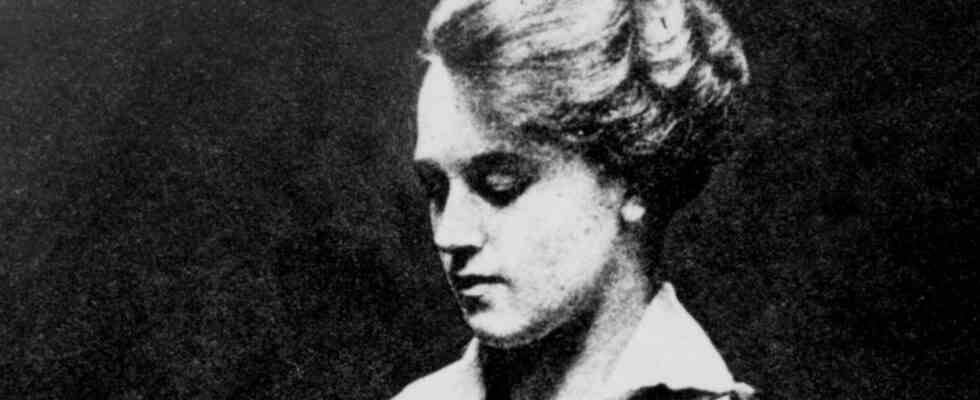Controversial criminal case
Edith Thompson is said to have killed her husband – it was never proven, but she was executed
Edith Thompson
© United Archives International / Imago Images
The Edith Thompson case is one of the most controversial trials in Britain in the last century. She was executed with her lover after the murder of her husband without any evidence – probably also because as a woman she did not meet society’s expectations.
Edith Thompson and her husband Percy have a nice evening at a London theater on October 3rd, watching the comedy ‘The Dippers’. It was to be the last evening they spent together. On the way home, Percy Thompson is suddenly attacked by another man with a knife and seriously injured. The trail of blood on the road is 13 meters long. Edith can only watch and call a doctor – but too late: her husband dies at the scene of the crime.
However, she does not mention a knife attack to the police, instead she claims that her husband had a seizure – a strange explanation for the stab wounds. The police arrested the perpetrator the next day. It is Frederick Bywaters who has a special relationship with Edith Thompson. Both have known each other since school and have been having an affair for more than a year that Percy doesn’t know about.
What did Edith Thompson know about her husband’s murder?
Faced with these facts, Edith can no longer hold her version of the evening. Through tears, she identifies Bywaters as the stabber. And the question quickly arises: How much did she know about her secret lover’s plans – did she instigate them or even support them in carrying them out?
28-year-old Edith has always been a woman who strived for autonomy and independence. At 22, she married Percy Thompson. Edith was not only employed, but also a managerial employee in a millinery and as such even earned more money than her husband – an absolute exception in the early 1920s. In the summer of 1921 she began an affair with Bywaters, who was eight years her junior. Her lover spends a lot of time at sea with the merchant marine, they write letters to each other that later prove fatal to them.
After the murder, the police use the love letters to uncover the connection between Bywaters and Thompson. This also directs suspicion to Edith. Bywaters initially protests that he is innocent, but then admits the crime. He acted in self-defense because Percy Thompson attacked him first. In addition, he acted alone, and Edith vehemently denies having been involved in the murder. “Mrs. Thompson didn’t know anything about my plans,” Bywaters confirmed in interrogations.
true crime
“Cannibal”, “Vampire”, “Killer Clown”: Ten serial killers who spread fear and terror in the USA
A process as a major public event
However, both are charged with murder. The trial of the lovers attracts a lot of public attention, it is a social event. Spectators stream into the courtroom, heated discussions are held as to whether Edith Thompson is guilty or not. Intimate details from the letters will be revealed in court. The public sees Edith more and more as an unsympathetic woman who seduced a much younger man to commit murder. However, there was no evidence of this, and Bywaters also stuck to his account of having acted alone.
Last but not least, Edith Thomson’s rebellion against the social norms of the time – simply through her adultery and the liberal choice of words in her letters – led to her being sentenced to death, like Bywaters. The verdict is causing even greater debate than the trial. In January 1923, the sentence against Thompson and Bywaters was carried out. If ever a woman was hanged solely because of public prejudice and without any evidence, it was Edith Thompson, writes contemporary author Edgar Wallace.
Sources: BBC / “The Telegraph”


